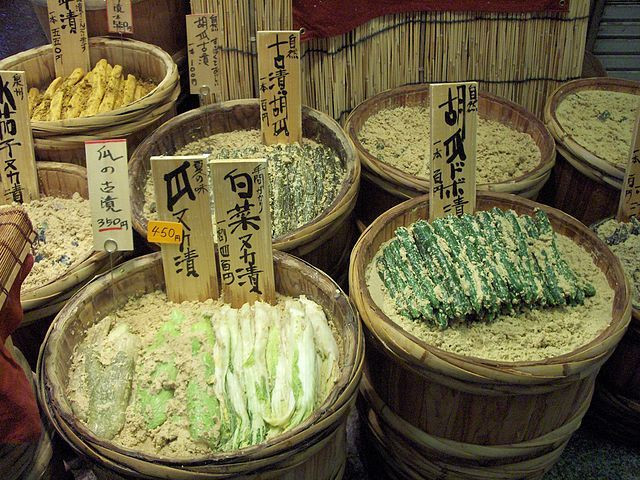Japanese Pickles Fight Flu Virus: Superfood's Bacteria Boost Immunity

A bacteria found in a traditional Japanese pickle may be able to boost immunity and prevent the flu virus, researchers discovered.
"Our results show that when a particular strain of Lactobacillus brevis is eaten by mice, it has protective effects against influenza virus infection," Naoko Waki, lead researcher, of Kagome Company, Ltd, stated in a press release. Japan-based Kagome is a food products company that offers ketchup, vegetable juice, and other products.
Considering Japanese Health Ministry data released earlier this year indicates that girls born in Japan during 2012 could expect to live up to 86.4 years on average, while boys would most likely attain 79.9 years, this news may be unsurprising to many. The Japanese are often commended for a generally healthier lifestyle and lower rates of many cancers in comparison to other developed nations.
Kyotsukemono
Suguki is one of a variety of pickled vegetables, collectively known as tsukemono, which are popular in Japan. Lauded for its health benefits, suguki’s positive effect on human health has not yet been studied in clinical trials, though one involving a probiotic drink containing Lactobacillus brevis KB290, a particular strain of the bacteria, is currently underway. Although they are still investigating this strain, what scientists already know is that a protective layer of sugars called exopolysaccharides make the bacteria remarkably tolerant of stomach juices.
"We know that exopolysaccharides have immune boosting effects in other similar bacteria, so we wonder if the exopolysaccharides of KB290 are responsible for the effects we see," Waki stated in a press release. So far, scientists have observed the bacteria’s ability to increase production of immune system molecules in the body, including flu-specific antibodies, and to generally enhance immune system activity, which then helps to eradicate virus-infected cells. In the current study, the research team found such effects to be sufficient in preventing infection by the H1N1 flu. They have grander dreams, though, and hope to find evidence of its ability to protect against other viral infections, including the deadly H7N9 flu. Having emerged in China during the past year, H7N9 may break out again, many fear, sometime this winter.
Tsukemono is a common food in Japan that may be served during a meal or as a light appetizer. Suguki pickles are most popular among denizens of Kyoto, where it is often served in winter as the turnips from which it is made are harvested in late autumn, early winter. This kyotsukemono is described as tasting both salty and mildly acidic.



























